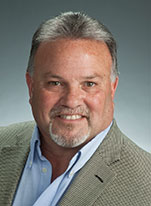 Commissioner Spotlight: Bill Smith
Commissioner Spotlight: Bill Smith
William (“Bill”) Smith, Jr. brings to the NCCCO Commission more than 30 years of experience in the crane, rigging, and construction industry from labor, management, government, and insurance perspectives. Much of his career has been focused on safety issues and training on safe work practices. This well-rounded, 360-degree viewpoint makes him uniquely qualified to serve on the Commission, which he has done for more than 10 years.
In the early ‘90s, he represented the International Union of Operating Engineers (IUOE) on the original SC&RA committee that proposed a national crane operator certification program. More importantly, he was instrumental in convincing union executives of the value of third-party testing and helped IUOE become involved in and support NCCCO during its formative years.
Having been involved with NCCCO from its inception, he says, “NCCCO has the largest group of subject matter experts of any certifying body, and with its buy-in from all stakeholders affected by crane safety—including labor, management, and government—it has maintained the gold standard of crane operator certification since it was established in the mid-1990s.”
Mr. Smith is currently Vice President, Nations Builders Insurance Services (NBIS), Risk Services, where he helps prevent losses through education, training, risk management transfer, and accident investigation for more than 5,000 builders and 500 crane, rigging, and heavy haul customers. At NBIS he and his team developed a “Risk Management Support System” for all NBIS-insured customers that educates and provides loss-control measures ranging from contract management (risk transfer), to safety, regulatory, and industry standards compliance, to case studies and claim management (accident investigation).
From his vantage he sees that while NCCCO’s true impact on crane safety can be difficult to measure, the program reached a significant milestone once the largest users of cranes began requiring CCO certification for all their operators. He believes that even more significant benefits will come—and historical data will be easier to measure—when all operators involved in construction are required by law to be certified.
He started his career working as a journeyman crane operator for 10 years, and he is still a CCO-certified crane operator. He then worked as a lobbyist and business agent representing the construction industry, a director of safety and training at IOUE’s national headquarters in Washington DC, a corporate safety manager at Maxim Crane Works, and as a U.S. Department of Labor OSHA compliance specialist.
In addition to serving as an NCCCO Commissioner and Alternate Commissioner as well as on many NCCCO committees and task forces, during his career he’s also participated on numerous other safety-related advisory groups, including ASME B30, ASSE A-10, C-DAC, OSHA’s ACCSH, and the SC&RA Crane and Rigging Safety Committee.
Because his work at NBIS keeps him traveling almost non-stop, he truly enjoys spending time with his family when he can, especially when his children and grandchildren can get together at his beach house or get out on the water in his boat.